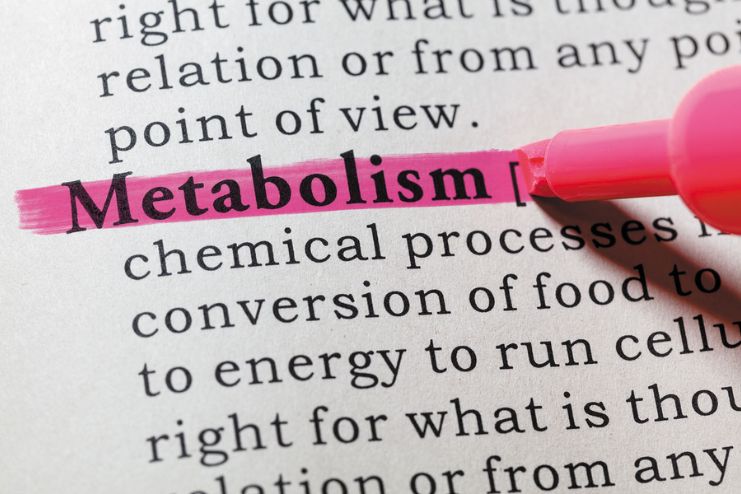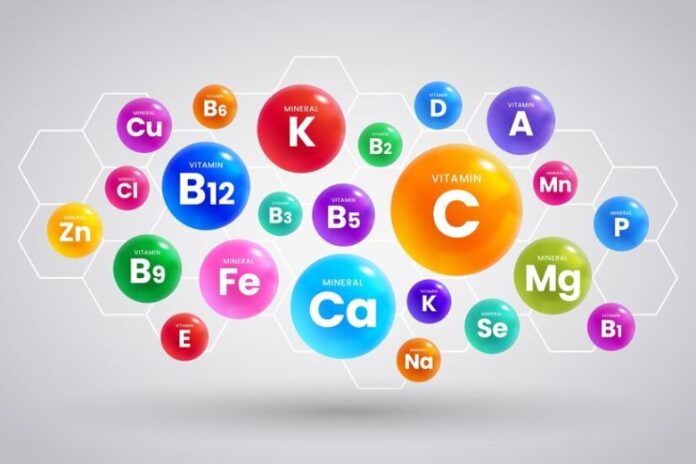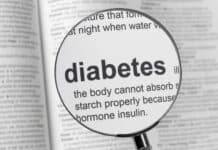Affiliate Disclaimer
Some links in this article are affiliate links. We may earn a small commission if you make a purchase through these links, at no extra cost to you. We only recommend products we find useful to our readersDiabetes goes beyond the confines of a pathological increase in blood sugar. It is also considered a complex genetic, lifestyle, and nutritional condition. The newest research results indicate that vitamin deficiencies might be critical for the onset and following progression of diabetes.
This article will address the relationship between vitamin deficiencies and diabetes on specific types of vitamins, their biological roles, and how they may impact metabolic health.
The Role of Vitamins in Metabolism

Vitamins are organic compounds essential for many biochemical reactions in the body. They act as coenzymes, antioxidants, and regulators of gene expression. A summary of the significant vitamins associated with the treatment of diabetes is listed below:
-
Vitamin D
Biological Functions: Vitamin D is important for calcium absorption and bone mineralization, in addition to its well-known role in bone health. It also affects insulin sensitivity and secretion (R). The active form of vitamin D, calcitriol, regulates the expression of insulin receptors on target cells.
Deficiency and Diabetes Risk: Some research has suggested that vitamin D deficiency increases the risk of type 2 diabetes (R). People with low vitamin D levels may have increased insulin resistance and impaired glucose tolerance.
Also, some studies suggest that supplementation improves insulin sensitivity and reduces fasting glucose in deficient people (R).
-
Vitamin B12 (Cobalamin)
Biological Functions: Vitamin B12 is needed to form red blood cells and DNA synthesis. It also maintains the life of nerve cells. Homocysteine, a harmful amino acid associated with heart disease, is also involved in homocysteine metabolism (R).
Deficiency and Diabetes Risk: Vitamin B12 deficiency is widespread among people with type 2 diabetes, particularly those treated with metformin. Neurological symptoms of deficiency include neuropathy that complicates diabetes control and promotes increased insulin resistance.
It has been indicated that sufficient levels of B12 are associated with protection against diabetic neuropathy progression (R).
-
Vitamin B6 (Pyridoxine)
Biological Functions: Vitamin B6 is crucial for amino acid metabolism, neurotransmitter synthesis, and immune function. It also aids in converting glycogen to glucose, contributing to glucose homeostasis.
Deficiency and Diabetes Risk: Low vitamin B6 levels have been connected to increased insulin resistance and decreased glucose metabolism (R). Other researchers claim that deficiencies of this vitamin increase blood sugar, leading to an enhanced predisposition to type 2 diabetes (R).
-
Vitamin C (Ascorbic Acid)
Biological Functions: Vitamin C is a powerful antioxidant that protects cells from oxidative damage, supports immune function, and is involved in collagen synthesis and iron absorption.
Deficiency and Diabetes Risk: Low levels of vitamin C have been associated with increased oxidative stress (R) and inflammation (R), factors that contribute to insulin resistance. In some studies, greater consumption of vitamin C has been reported to enhance glucose regulation and reduce the risk of developing type 2 diabetes.
-
Vitamin E (Tocopherol)
Biological Functions: Vitamin E is an antioxidant that protects cell membranes from oxidative damage. It is also involved in immune function and cell signaling.
Deficiency and Diabetes Risk: Vitamin E deficiency is associated with higher oxidative stress and inflammation levels (R), which may aggravate insulin resistance and increase type 2 diabetes risk. Some evidence indicates that supplementation may improve insulin sensitivity in people with diabetes (R).
Mechanisms Linking Vitamin Deficiency and Diabetes

Understanding the mechanisms through which vitamin deficiencies may influence diabetes risk is essential for developing effective prevention strategies. These include:
- Insulin Sensitivity: Vitamins D, B12, and B6 are linked to the pathways that regulate insulin sensitivity. Deficiencies lead to cellular resistance to insulin, which contributes to hyperglycemia (R). For example, vitamin D stimulates insulin receptor signaling (R), while B vitamins play a role in energy metabolism (R).
- Inflammation: Chronic low-grade inflammation is a characteristic of insulin resistance and type 2 diabetes. Vitamins C and E have antioxidant properties that help reduce oxidative stress and inflammation. Deficiencies in these vitamins may lead to enhanced inflammatory responses, further impairing insulin action and glucose metabolism.
- Oxidative Stress: Increased oxidative stress can harm pancreatic beta cells, the cell type responsible for insulin synthesis. A lack of antioxidants such as vitamins C and E would increase oxidative damage. This leads to impaired insulin secretion, which exacerbates the course of the disease in diabetes.
- Nerve Health: Vitamins B12 and B6 are necessary for healthy nerves. Deficiencies lead to neuropathy (R), which is a common complication of diabetes. Neuropathy affects blood sugar control and complicates management. Proper nerve function is needed to sense blood sugar and respond appropriately.
Diabetes Management and Prevention

Holistic Approach
Diabetes management requires a holistic approach to monitoring vitamin levels, regular exercise, maintaining a healthy weight, and stress management. Vitamin deficiency should be an integral part of this management.
- Screening for Deficiencies
Screening for vitamin deficiencies is helpful and should be conducted in those at risk of diabetes. Early detection enables timely intervention through dietary adjustments or supplementation, thereby reducing the risk of diabetes.
- Dietary Modifications
A balanced diet containing all the necessary vitamins is vital for maintaining metabolic health. Foods that are rich in vitamins D, B6, B12, C, and E include:
- Vitamin D: Fatty fish, such as salmon or mackerel, fortified milk products, and egg yolk
- Vitamin B12: Meat, fish, eggs, and dairy products
- Vitamin B6: Chicken, fish, potatoes, and other fruits except citrus fruit
- Vitamin C: Citrus fruits, strawberry, bell peppers, broccoli
- Vitamin E: Nuts, seeds, spinach, and vegetable oils
- Supplementation
Supplementation can be essential to maintaining good health, especially for those with dietary restrictions, specific health disorders, or nutrient deficiencies. Certain groups may find it difficult to obtain essential vitamins and minerals solely from their diet, making supplements a valuable addition to their health regimen.
For instance, vegetarians and vegans always require vitamin B12 supplements because this vitamin is found mainly in animal-based foods. B12 is needed to produce red blood cells, proper neurological functions, and DNA synthesis. A deficiency may cause fatigue, weakness, and nerve damage.
Similarly, people with limited sun exposure or those living in regions with minimal sunlight may benefit from vitamin D supplementation. Vitamin D is vital in bone health, immune function, and calcium absorption. Insufficient levels can lead to weakened bones, increased susceptibility to infections, and other health issues.
Other common supplementation needs include:
- Iron
- Omega-3 Fatty Acids
- Magnesium
Remember, over-supplementation may result in toxicity and harmful effects. For example, an excessive intake of vitamin D causes hypercalcemia that damages the kidneys, while an overdose of iron may harm organs.
By supplementing wisely and with a balanced diet, individuals can address nutrient gaps and reduce the risk of deficiencies and related health problems.
Conclusion
The link between vitamin deficiency and diabetes underlines nutrition’s role in metabolic health. Good levels of vitamins D, B12, B6, C, and E will impact the body in terms of insulin sensitivity, normal glucose metabolism, and reduction of inflammation.
Correcting deficiencies by diet, supplementation, or routine screenings is also a critical strategy in preventing and treating diabetes.
The more we discover about these relationships, the more significant it will become to include nutrition considerations in diabetes prevention and management programs to help individuals at risk or with diabetes protect their health.
References
- https://openoregon.pressbooks.pub/nutritionscience/chapter/9e-energy-metabolism-vitamins-minerals
- https://med.libretexts.org/Courses/American_Public_University/APUS%3A_An_Introduction_to_Nutrition_(Byerley)/APUS%3A_An_Introduction_to_Nutrition_1st_Edition/06%3A_Energy_Metabolism/6.03%3A_Vitamins_Important_for_Metabolism
- https://pmc.ncbi.nlm.nih.gov/articles/PMC10146464
In this Article




















